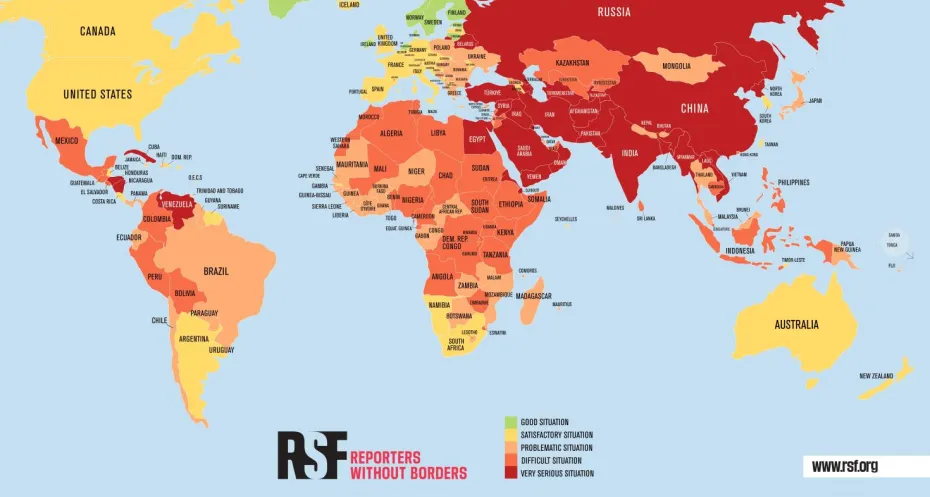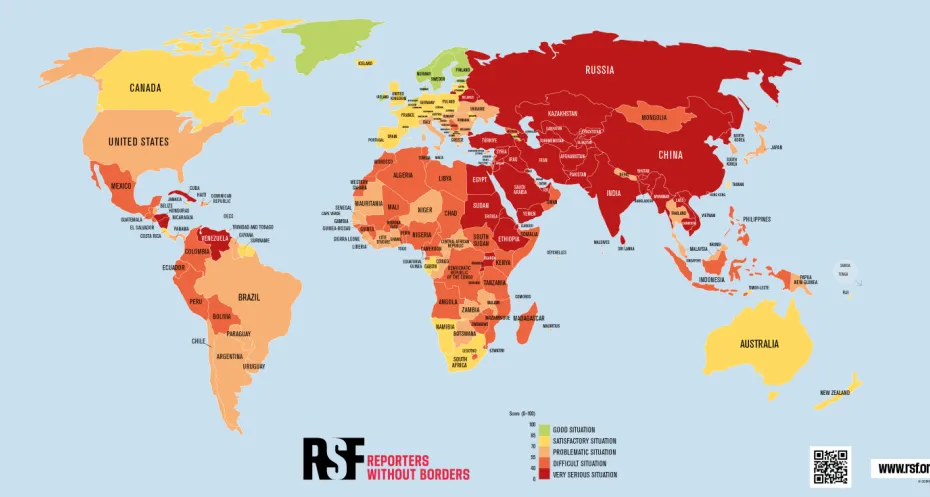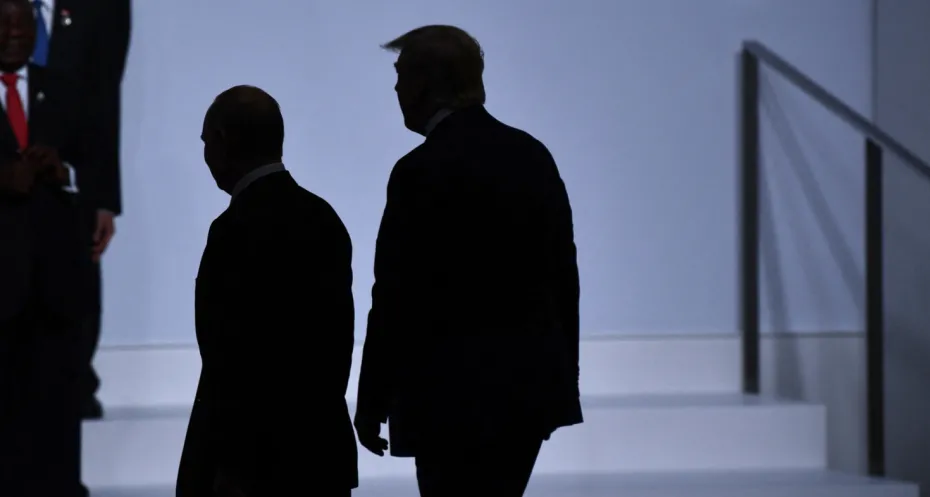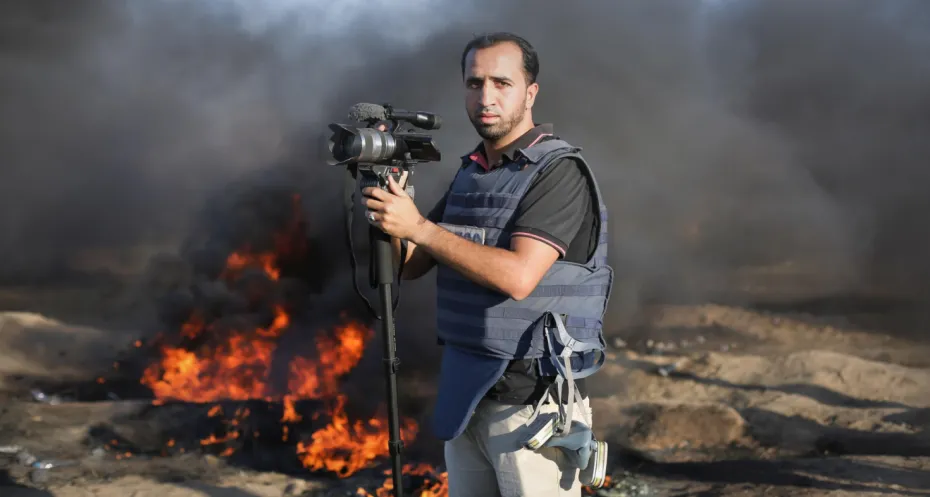The 2023 World Press Freedom Index highlights the increasing threat to press freedom worldwide

Every year, Reporters Without Borders (RSF) releases a World Press Freedom Index on The Day of Press Freedom (3 May). The index, consisting of a ranking of 180 countries, evaluates the climate for journalists and independent media worldwide. Major and radical changes related to political, social and technological developments are highlighted.
The World Press Freedom Index shows that media and press freedom is very poor in 31 countries. It is poor in 42 countries, problematic in 55 and good or fairly good in 52. This means that 7 out of 10 countries have a poor environment for journalists. A serious development as press and media freedom is a human right.
Europe
According to RSF, Europe, especially the European Union, offers the safest environment for journalists. This does not mean that we can talk about a pure and complete form of press freedom here. There are many EU countries facing declining press freedom and a deteriorating situation for journalists. For instance, the index shows that Germany (spot 21) has fallen five places from the previous year (16). The year 2022 saw a record number of cases of violence against journalists and arrests there. At spot 107, Greece occupies the lowest spot in the EU (last year 108). According to RSF, the biggest explanation for this position is the major Spyware scandal. Journalists were spied on by intelligence agencies and powerful Spyware called Predator. This is a bad violation of both the right to press freedom and privacy.
The positive news is that twice as many EU countries rose than fell. Poland (57) went up by nine places, France (24) by two places and the Netherlands (6) by 22, meaning that as the Netherlands we are back in the top 10.
The Netherlands
Last year, the Netherlands took a deep fall down the list from spot number 6 to spot number 28. We saw increasing aggression against journalists during demonstrations, online violence and the murder of investigative journalist Peter R. de Vries in the year 2021. The Netherlands generally offers a safe climate for journalists partly because of PersVeilig. This collaboration between the Police, the Public Prosecution Service, the Association of Journalists and the Society of Chief Editors aims to strengthen the position of journalists against violence and aggression on the streets, on social media and against legal claims. It shows how important these initiatives can be for a country's press freedom and security.
''The Netherlands rises from spot 28 to spot 6, returning to the top 10 where I believe the Netherlands belongs.'' - Ruth Kronenburg, Executive Director Free Press Unlimited
But despite the favourable conditions for press freedom, aggression against journalists has been on the rise in recent years. Free Press Unlimited therefore organised an international mission on journalist safety in the Netherlands last year with a European consortium of press freedom organisations, the Media Freedom Rapid Response. This was to investigate the discrepancy between what we believe is the reality and the actual increasing insecurity of journalists. This investigation shows that it is increasingly unsafe for journalists in the Netherlands. Because even though the Netherlands is back in the top 10, press freedom is a human right that must be protected.



